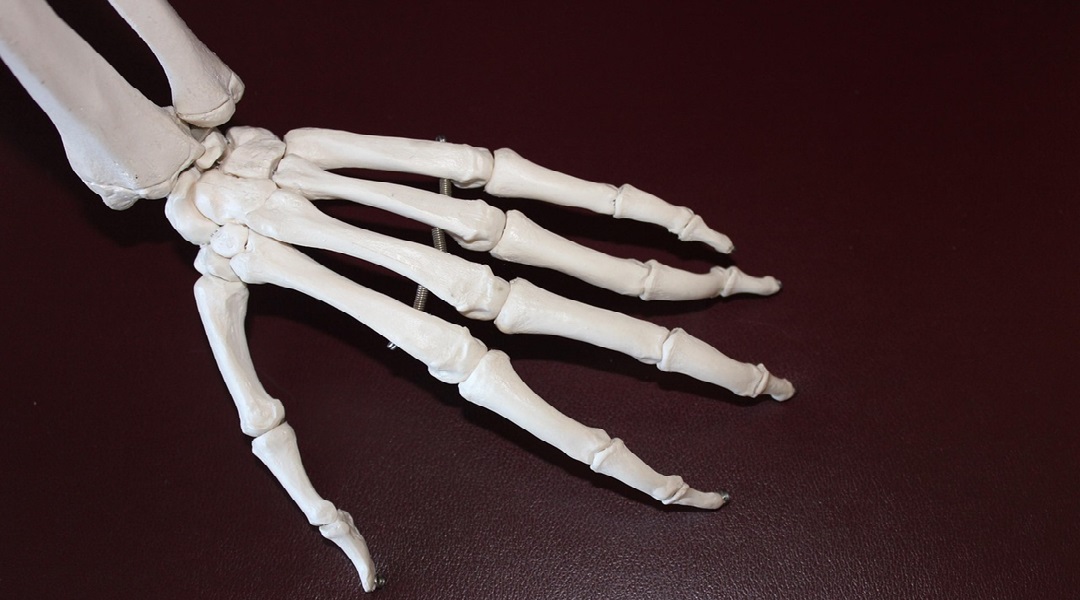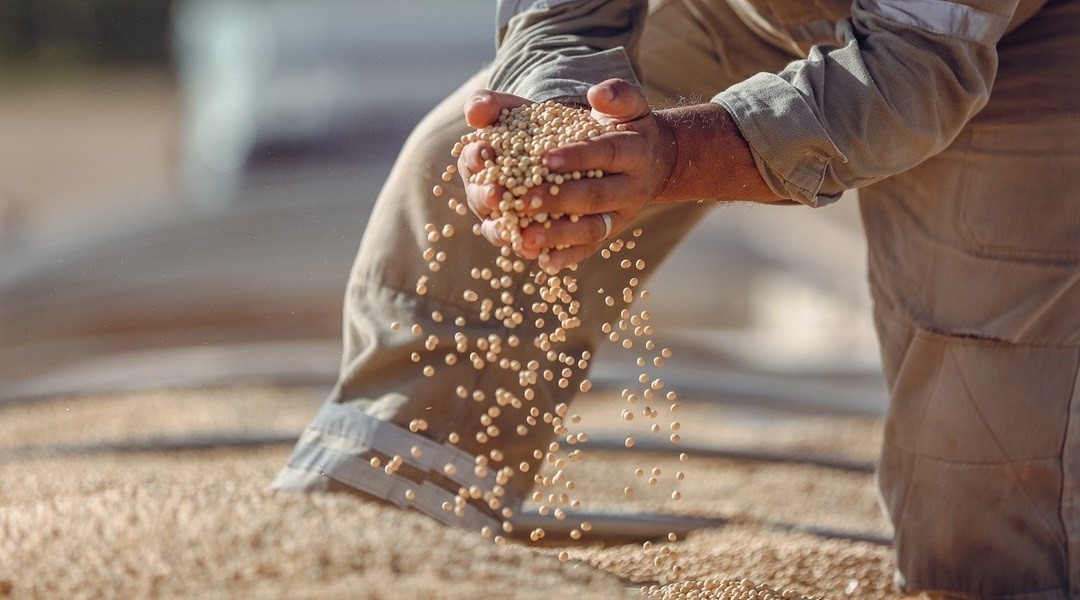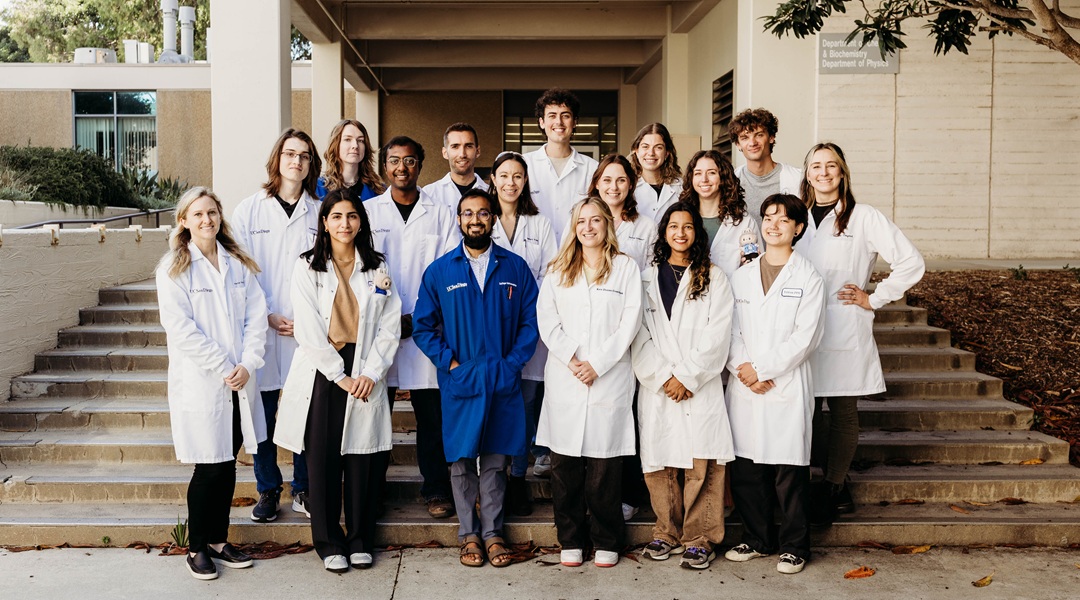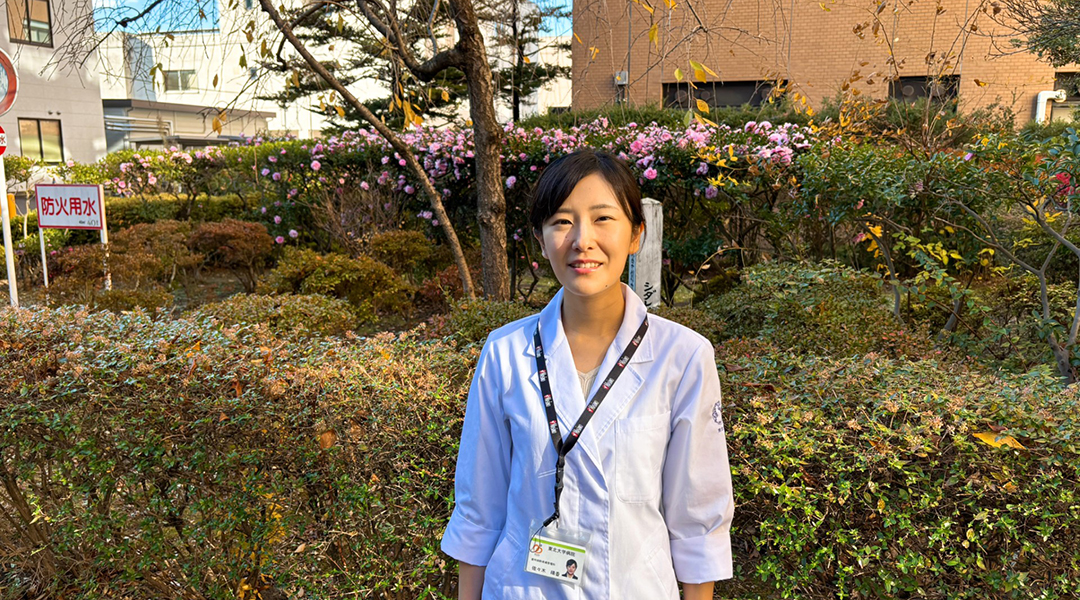Latest

3D printed scaffolds bring artificial bone closer to reality
New 3D printed scaffolds more accurately mimic the structure and behaviour of natural bone.

AI-Guided Gene Editing Boosts Soybean Oil Yields
Structure-predicting AlphaFold could help revolutionize soybean crop breeding through AI-guided precision gene editing.

Moth eyes inspire flexible X-ray shields and sensors
Drawing from nature, scientists are creating next-generation X-ray protective clothing and equipment.

Alexis Komor, Expanding the Gene Editing Toolbox
Young Innovator Awardee for 2025, Komor leads a group at UCSD developing precision genome editing methods using chemical biology.

Machine learning identifies anti-aging neuroprotective treatments
The effects of aging on the human brain could be slowed down with the help of artificial intelligence.

3D printed scaffolds bring artificial bone closer to reality
New 3D printed scaffolds more accurately mimic the structure and behaviour of natural bone.

AI-Guided Gene Editing Boosts Soybean Oil Yields
Structure-predicting AlphaFold could help revolutionize soybean crop breeding through AI-guided precision gene editing.

Moth eyes inspire flexible X-ray shields and sensors
Drawing from nature, scientists are creating next-generation X-ray protective clothing and equipment.

Alexis Komor, Expanding the Gene Editing Toolbox
Young Innovator Awardee for 2025, Komor leads a group at UCSD developing precision genome editing methods using chemical biology.

Machine learning identifies anti-aging neuroprotective treatments
The effects of aging on the human brain could be slowed down with the help of artificial intelligence.
ASN Newsletter
Sign up for our newsletter and receive the latest science news directly to your inbox.

New Doppler cloak hides moving objects by making them appear static
Doppler cloak confuses radars by altering the phase of incoming radar waves in real time.

Turning Food into Lasers: A New Era in Information Encoding and Sensing
Fabrication of microlasers using all edible components.

Soy protein fuels the future of eco-friendly solid-state batteries
The world’s most grown legume could be used to make the batteries of the future.

Self-Healing Hydrogels Could Help Injured Ligaments Regenerate
Cell-laden hydrogels could promote tissue regeneration while avoiding immune rejection.

Quantum router preserving delicate photon states may advance quantum technologies
Low-loss router based on an interferometer preserves polarization while directing single photons and entangled pairs.

3D printed scaffolds bring artificial bone closer to reality
New 3D printed scaffolds more accurately mimic the structure and behaviour of natural bone.

3D printed scaffolds bring artificial bone closer to reality
New 3D printed scaffolds more accurately mimic the structure and behaviour of natural bone.

Machine learning identifies anti-aging neuroprotective treatments
The effects of aging on the human brain could be slowed down with the help of artificial intelligence.

Self-Healing Hydrogels Could Help Injured Ligaments Regenerate
Cell-laden hydrogels could promote tissue regeneration while avoiding immune rejection.
3D printed scaffolds bring artificial bone closer to reality
New 3D printed scaffolds more accurately mimic the structure and behaviour of natural bone.
3D printed scaffolds bring artificial bone closer to reality
New 3D printed scaffolds more accurately mimic the structure and behaviour of natural bone.
Machine learning identifies anti-aging neuroprotective treatments
The effects of aging on the human brain could be slowed down with the help of artificial intelligence.
Self-Healing Hydrogels Could Help Injured Ligaments Regenerate
Cell-laden hydrogels could promote tissue regeneration while avoiding immune rejection.

Quantum router preserving delicate photon states may advance quantum technologies
Low-loss router based on an interferometer preserves polarization while directing single photons and entangled pairs.

Micron-sized hidden dimensions could solve two of physics’ deepest puzzles
Extra dimensions at the microscale could be tested experimentally within 3-5 years.

Quantum Anomalies in Condensed Matter: From Theoretical Peculiarities to Tangible Science
Making quantum anomalies accessible to experimentalists could redefine next-generation technologies and device engineering.

Fermilab Confirms Muon g-2 Measurements
Fermilab releases its final results, testing the Standard Model of particle physics.
Quantum router preserving delicate photon states may advance quantum technologies
Low-loss router based on an interferometer preserves polarization while directing single photons and entangled pairs.
Micron-sized hidden dimensions could solve two of physics’ deepest puzzles
Extra dimensions at the microscale could be tested experimentally within 3-5 years.
Quantum Anomalies in Condensed Matter: From Theoretical Peculiarities to Tangible Science
Making quantum anomalies accessible to experimentalists could redefine next-generation technologies and device engineering.
Fermilab Confirms Muon g-2 Measurements
Fermilab releases its final results, testing the Standard Model of particle physics.

AI-Guided Gene Editing Boosts Soybean Oil Yields
Structure-predicting AlphaFold could help revolutionize soybean crop breeding through AI-guided precision gene editing.

New Doppler cloak hides moving objects by making them appear static
Doppler cloak confuses radars by altering the phase of incoming radar waves in real time.

Machine learning identifies anti-aging neuroprotective treatments
The effects of aging on the human brain could be slowed down with the help of artificial intelligence.

Machine learning identifies anti-aging neuroprotective treatments
The effects of aging on the human brain could be slowed down with the help of artificial intelligence.
AI-Guided Gene Editing Boosts Soybean Oil Yields
Structure-predicting AlphaFold could help revolutionize soybean crop breeding through AI-guided precision gene editing.
New Doppler cloak hides moving objects by making them appear static
Doppler cloak confuses radars by altering the phase of incoming radar waves in real time.
Machine learning identifies anti-aging neuroprotective treatments
The effects of aging on the human brain could be slowed down with the help of artificial intelligence.
Machine learning identifies anti-aging neuroprotective treatments
The effects of aging on the human brain could be slowed down with the help of artificial intelligence.

Soy protein fuels the future of eco-friendly solid-state batteries
The world’s most grown legume could be used to make the batteries of the future.

Water-powered gadgets may be on the horizon thanks to new evaporation-based energy device
Scientists created an “evapolectrics” generator that draws power directly from water evaporation, offering a sustainable, battery-free energy source from humidity.

Climate pledges could shrink global cropland
The tradeoff raises concerns about food security, particularly for the Global South.

Sustainable building material extracted from seawater
A sand-like material can be extracted from seawater by adding carbon dioxide, potentially making the building industry more sustainable.
Soy protein fuels the future of eco-friendly solid-state batteries
The world’s most grown legume could be used to make the batteries of the future.
Water-powered gadgets may be on the horizon thanks to new evaporation-based energy device
Scientists created an “evapolectrics” generator that draws power directly from water evaporation, offering a sustainable, battery-free energy source from humidity.
Climate pledges could shrink global cropland
The tradeoff raises concerns about food security, particularly for the Global South.
Sustainable building material extracted from seawater
A sand-like material can be extracted from seawater by adding carbon dioxide, potentially making the building industry more sustainable.

Alexis Komor, Expanding the Gene Editing Toolbox
Young Innovator Awardee for 2025, Komor leads a group at UCSD developing precision genome editing methods using chemical biology.

Haitham Amal: targeting autism spectrum disorder, Alzheimer’s disease, and glioblastoma with small-molecule drugs
With FDA orphan drug approval secured, Amal and his team are preparing for phase 1 clinical trials of their small-molecule drugs in 2026.

Claudia Loebel, understanding cell memory could lead to patient-specific treatments
Recreating the material that surrounds cells, Loebel aims to better understand cell memory and its role in disease development.

Haruka Sasaki, uncovering the link between melatonin and asthma
Haruka Sasaki is researching how melatonin impacts asthma to create new treatments for life-threatening nocturnal attacks.








